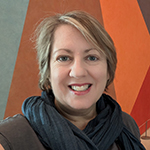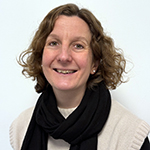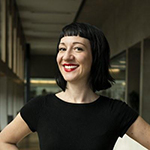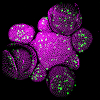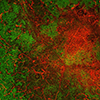
Advancing Neuroinclusion
Best Practices Round Table
24 September 2025 | 2pm
Venue: Sainsbury Laboratory, University of Cambridge, 47 Bateman St, Cambridge CB1 7AF (How to find us)
There’s no need to book, just come along on the day.
Attend Online: Join the live Zoom Webinar
More information: events@slcu.cam.ac.uk
About the event
Join colleagues from across academic, research, and professional services for a collaborative round table exploring best practices in supporting neurodiverse staff, students and visitors. This session will spotlight practical strategies, lived experiences, and institutional approaches that foster inclusive, supportive environments for neurodivergent individuals working in higher education and research settings.
Please join us in this round table to discuss how we can support neurodiverse colleagues and create an environment where everyone can thrive.
Ask a question of the panel
Please use this form to pre-submit questions you would like the panel to address. Provide as much context as you can so the panel can respond effectively.
Panellists
Dr Kelsey J.R.P Byers
John Innes Centre
Kelsey Byers (any/all pronouns) is a Group Leader at the John Innes Centre (Norwich, UK) where they lead a team studying the role of floral scent in animal pollination and flowering plant evolution. Originally from the USA, Kelsey has lived in several countries and conducted research in several more. As a multiply-disabled and multiply-neurodivergent human (ASD, ADHD, Auditory Processing Disorder), Kelsey advocates for the inclusion of disabled and neurodivergent individuals in STEM fields, particularly in field biology.
Dr Amanda Brunton
CCTL, University of Cambridge
Amanda has a particular interest in accessibility in teaching and is passionate about creating a welcoming learning environment for her students. She runs the Autism and ADHD-Friendly Writing Retreats for PhD students across the university. Amanda’s background is in Early Modern English history and literature, and she holds a PhD in English Literature.
Dr Julie Bailey
University of Cambridge
Julie is an experienced educator, researcher and specialist mentor, supporting neurodivergent and disabled students to success in their studies and beyond. Following a career in secondary education and sixth form leadership, she returned to the University of Cambridge where she completed an MEd and PhD in higher education neurodiversity inclusion. Julie has lived experience of neurodivergence and was the founding chair of governors for The Cavendish School, an innovative specialist, state-funded school for autistic children and young people in and around Cambridge. She currently combines multiple student support, teaching and research roles, with a particular interest in the use of AI in supporting inclusion.
Dr Kate Hughes
Department of Veterinary Medicine, University of Cambridge
Kate Hughes (she/her) is a veterinary pathologist at the University of Cambridge Veterinary School. She teaches veterinary students in years 4, 5 and 6 of the course, in both traditional teaching settings, and in small groups during practical clinical rotations. Her interests include understanding how the physical teaching environment impacts student learning, and understanding the needs of neurodivergent students when designing teaching and learning activities.
Chaired by Dr Eva Hellmann
Training and Inclusive Support Manager, University of Cambridge



